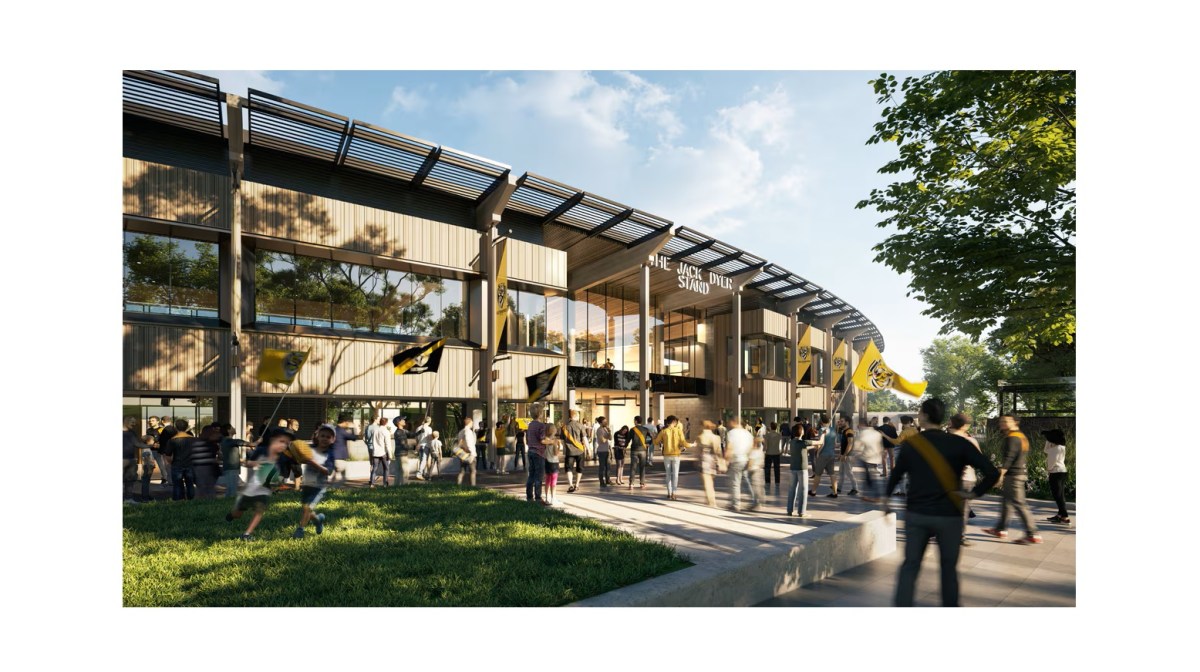Richmond Football Club has officially broken ground on what it describes as the “most significant” infrastructure project in its history, with the redevelopment of Punt Road Oval now underway.
“This is an incredibly exciting moment for our Club,” Richmond CEO Shane Dunne said.
“It will make us stronger on and off the field and ensure we are set up for success for generations to come. Importantly, this redevelopment will ensure Richmond stays in Richmond, our home since 1885.”
The $85 million first stage of the redevelopment includes a new Jack Dyer Stand, which will accommodate more fans than the current grandstand it will replace. The project also features upgraded facilities for both the AFL and AFLW teams, including new changerooms, player spaces, recovery areas, and strength and conditioning zones.
A three-level underground car park and a landscaped terrace will also be constructed as part of this stage.
The oval itself will also be expanded and realigned to meet AFLW standards, making it the same size as the MCG, including new lighting to transform the on-field playing space for Richmond and all visiting teams.
The redevelopment will also enhance facilities for the broader community, where Punt Road Oval is home to key partner organisations including the Korin Gamadji Institute, Bachar Houli Foundation, and Melbourne Indigenous Transition School.
Build Environs has been appointed to lead construction, with Stage One expected to be completed by mid-2027.
The project is being supported by $20 million in funding from the Victorian government, alongside contributions from the federal government, the AFL, and Richmond Football Club itself.
“Punt Road Oval is an iconic sporting venue,” Minister for Tourism, Sport and Major Events Steve Dimopoulos said.
“It’s been home to the Tigers for around 140 years ─ and this development will ensure footy, fans and the community will continue to benefit from this facility for many years to come.”
While construction begins on Stage One, the club is now working to secure the remaining $25 million required to fund Stage Two. This next phase includes the establishment of the William Cooper Centre and new administration offices within the Swinburne Centre.
“The job is not done from a fundraising perspective – we have a $25 million gap to fill – so we will continue to work with stakeholders, major supporters and our members and fans to build our financial strength to ensure we get the project completed in its entirety,” Dunne said.

